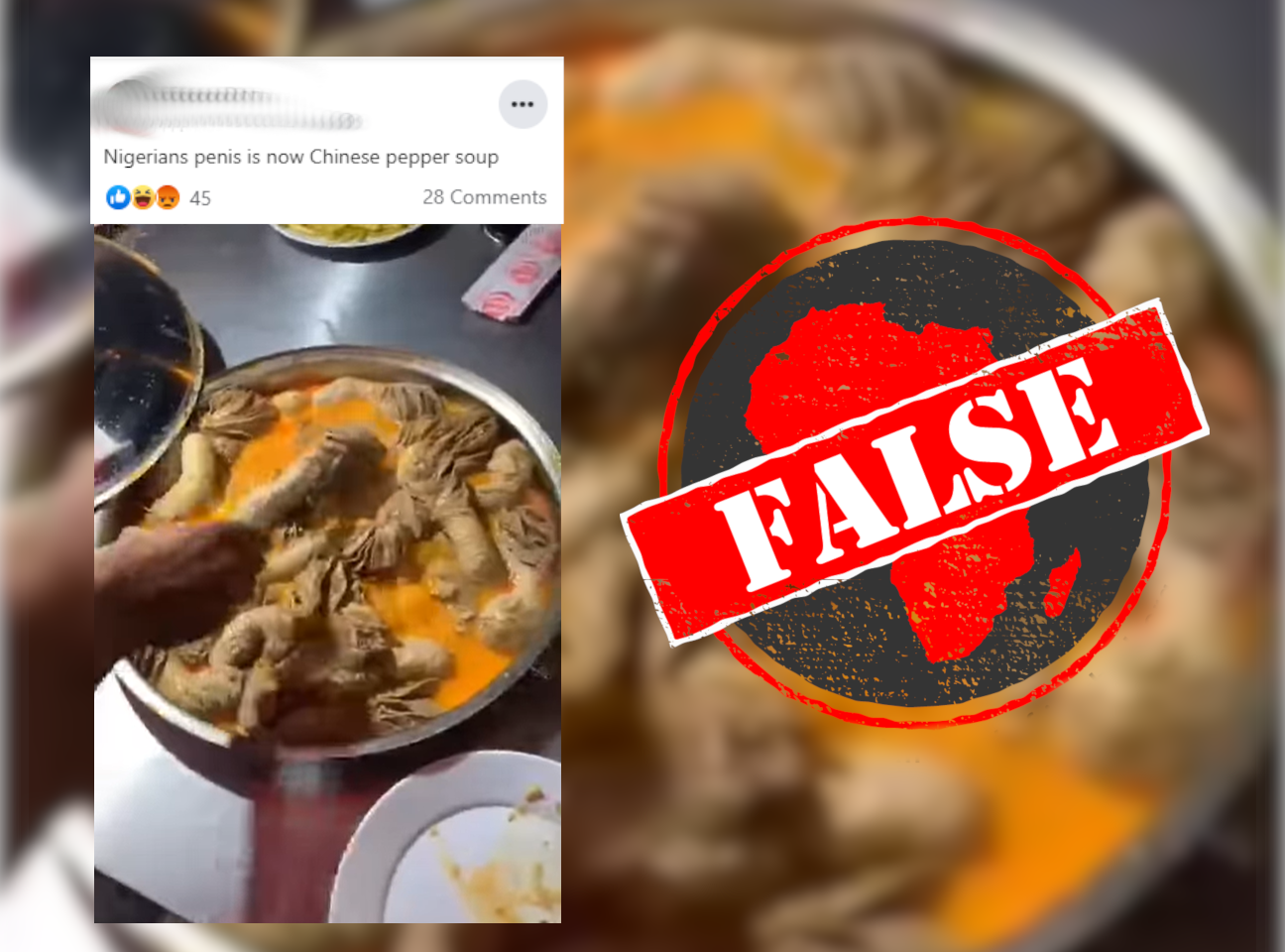“Nigerians penis is now Chinese pepper soup,” reads the caption of a viral video posted on Facebook in April 2021.
The video shows a pot of soup or stew with large chunks of meat that vaguely resemble penises. A voice speaking a foreign language can be heard off camera. The logo of the social media site TikTok is in the upper left corner.
The post has been viewed more than 500,000 times so far. It has been reposted with some variations to the caption. One version says the video shows Nigerian penises in Chinese and Arab pepper soup. Another adds: “Everyday young people get missing in nigeria without knowing that their penises are being served as breakfast in China.”
But what does the video really show? We checked.

‘Şırdan lovers, make yourself known’
The original TikTok video was posted on 2 September 2020 and appears to be authentic. Its hashtags are in Turkish and its caption reads: “Şırdan severler belli edin kendinizi 😋😋.” A machine translation of this is: “Şırdan lovers, make yourself known.”
Şırdan is a popular street food delicacy from the city of Adana in Turkey. It is made with sheep’s abosanum, one of the four compartments of the stomach. The organ is cleaned, stuffed with rice and spices, and cooked in a red stew.
A video on YouTube shows how the dish is prepared. Once the abosanum is stuffed, sewn together and boiled in the stew it begins to take on a more phallic appearance. Stock photos and photos on Instagram show what the dish looks like when served.
The video does not show Nigerian men’s penises in a Chinese pepper soup. It’s a stew, a Turkish delicacy, made with stuffed sheep stomach.
Republish our content for free
For publishers: what to do if your post is rated false
A fact-checker has rated your Facebook or Instagram post as “false”, “altered”, “partly false” or “missing context”. This could have serious consequences. What do you do?
Click on our guide for the steps you should follow.
Publishers guideAfrica Check teams up with Facebook
Africa Check is a partner in Meta's third-party fact-checking programme to help stop the spread of false information on social media.
The content we rate as “false” will be downgraded on Facebook and Instagram. This means fewer people will see it.
You can also help identify false information on Facebook. This guide explains how.


Add new comment